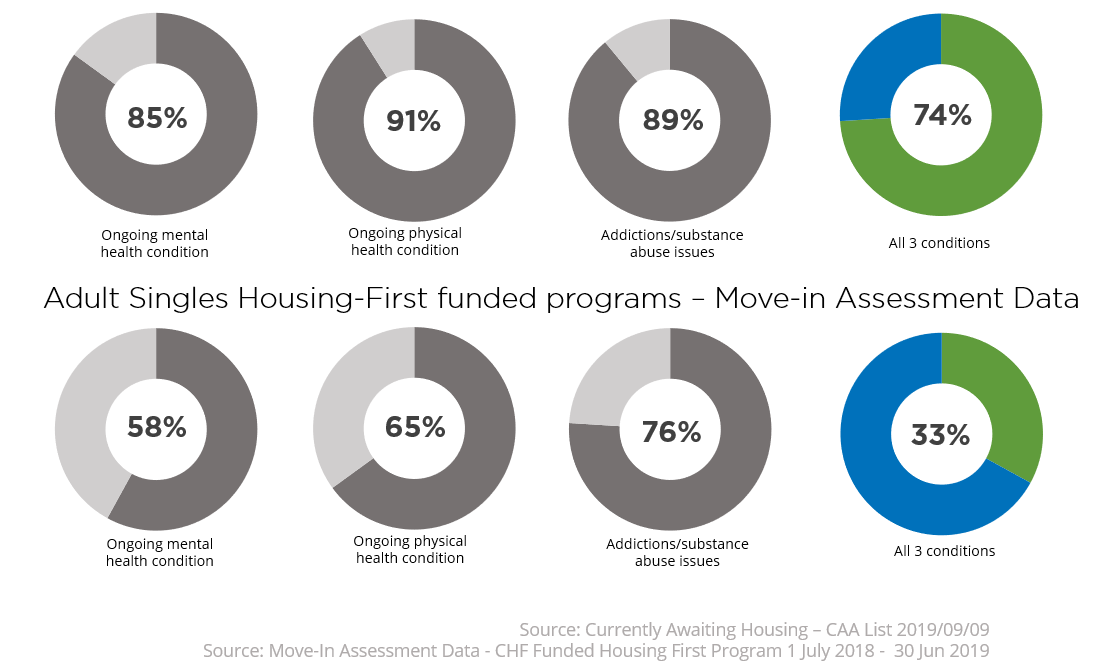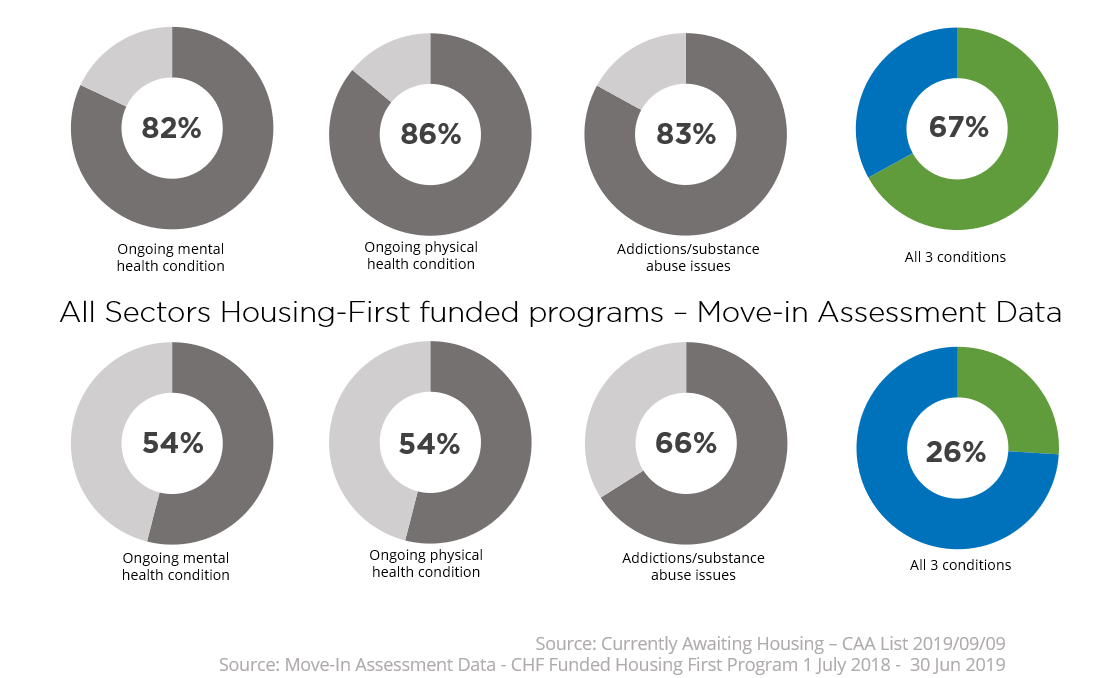Chronicity and Complexity
We use chronicity and complexity to match people experiencing homelessness with the right housing and supports.
Chronicity
Chronicity is the length of time a person spends in homelessness. There are three types:
- Chronic homelessness
A person experiences chronic homelessness when they have been continuously homeless for at least one year or have had at least four episodes of homelessness in the past three years.
To fall into this category, a person must be sleeping in an emergency shelter or a place not designed for human habitation.
- Episodic homelessness
A person experiences episodic homelessness when they have been continuously homeless for less than one year or have had fewer than four episodes of homelessness in the past three years.
Like chronic homelessness, a person must be sleeping in an emergency shelter or a place not designed for human habitation to fall into this category.
- Transitional homelessness
A person experiences transitional homelessness when they have been continuously homeless for the first time for less than three months or have had less than two episodes in the past three years.
To fall into this category, a person can be sleeping in an emergency shelter, a place not designed for human habitation, a friend’s couch or in a hospital or prison.
Complexity
Complexity is the level of a person’s needs. A person may rank as high, moderate or minor complexity depending on how much help they need to overcome the barriers that prevent them from maintaining permanent housing.
To determine an individual’s complexity, CHF focuses on three types of personal barriers:
- Physical health problems;
- Mental health problems, and
- Substance misuse issues.
If a person faces all three personal barriers, they have tri-morbidity. If they face any combination of two out of the three barriers, they have bi-morbidity.
Based on morbidity, we can identify whether a person has high, moderate or minor level of complexity.
- High complexity: people who are high complexity are the most vulnerable people in the homeless population. They have high rates of severe mental illness, substance misuse, and physical illness, injury or trauma, and are frequent users of emergency services and public safety systems.
- Moderate complexity: people who are moderate complexity have difficulty exiting homelessness on their own, because of financial barriers. They are also bi-morbid, which means they have serious mental illnesses, physical disabilities or chronic substance misuse issues, though not all three at the same time.
- Minor complexity: people who are minor complexity have financial barriers, but no personal barriers such as substance misuse issues, physical or mental health challenges. These people have lived independently in the past and can do so again after a short-term intervention.
Chronicity, Complexity and the Coordinated Access and Assessment System
We use chronicity and complexity to match people with the right supports and housing at the right time.
This process, called “triating,” takes place during weekly meetings for youth, family and adults attended by our staff and our agency partners.
These meetings, which form the heart of the Coordinated Access and Assessment (CAA) system, use data about individuals and families to place them in the appropriate services and programs.
The CAA concentrates its efforts on moderate to high complexity individuals experiencing chronic or episodic homelessness.
The complexity and chronicity of people being triaged through the CAA is demonstrated in the statistics below. For example, the CAA reported the following number of tri-morbid adults awaiting or entering Housing First programs as of June 2019:

The CAA also noted the number of tri-morbid or bi-morbid adults, youth and families on the triage list for Housing First programs:

People who are low complexity tend to be helped at the level of shelters, rather than by the CAA and Housing First programs.
CONTACT US
Calgary Homeless Foundation
Calgary House
Suite 1100, 550 6 Ave. SW
Calgary, Alberta, Canada T2P 0S2
Ph: (403) 237-6456
Fax: (403) 262-2924

